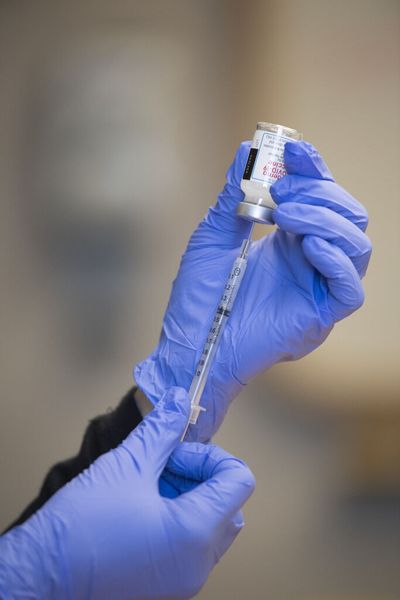Teachers to be vaccinated against COVID-19 within four to six weeks

If the supply chain cooperates, all public and private school employees who want a COVID-19 vaccine will begin receiving the shot within the next four to six weeks, State Superintendent Chris Reykdal said Friday.
“This will expedite vaccines when the time comes,” Reykdal said during a joint news conference with Susan Mullaney, president of Kaiser Permanente.
Under the “Get Ready Plan,” up to five Kaiser Permanente locations in Spokane will be made capable of offering vaccination to school employees.
Together with sites in the Puget Sound and other regions, upwards of 80% of employees statewide are expected to have easy access to the vaccines.
OSPI and Kaiser are currently preparing these sites “as if we can launch in about four weeks, but it is probably more practical to think about this as five or six weeks away,” Reykdal said.
The plan is designed to be launch-ready when personnel become eligible under Washington state’s vaccination protocols.
“Now what we need is the vaccine,” Mullaney said.
Reykdal made two key points during the news conference: that the plan does not affect the priority guidelines already set by Gov. Jay Inslee and the Washington State Department of Health; and that schools should continue to move forward with plans to reopen schools.
“Keeping our educators and school staff safe is very important to me,” Inslee said Friday. “This announcement does not allow educators to move ahead in the current prioritization, it means when it is their turn, we are ready to move ahead.”
Those eligible to receive the COVID-19 vaccine currently include residents 65 and older, along with those 50 and older living in multigenerational households.
Educators and staff in K-12 facilities are expected to be eligible to receive the vaccine after 50 percent of the currently eligible population is vaccinated, in accordance with DOH plans.
Among public and private school employees in Washington, that phase currently consists of roughly 7,000 people.
Overall, the state has more than 143,000 public school employees, while private schools have another 12,000.
Future phases of the vaccination process are not yet established.
Regarding the pace of returning students to buildings and resistance by some teachers’ unions, Reykdal acknowledged that the process “is not without risk.”
“But they can and should move forward,” said Reykdal, who stressed that the vaccine isn’t the sole determinant of safety against the virus
“It’s a tremendous safety net, but it’s not foolproof,” said Reykdal, who noted that roughly 20,000 to 30,000 school employees, or about one-sixth of the total, can’t or won’t take the vaccine.
“And students won’t get (the vaccine) for quite some time,” Reykdal said.
But Reykdal said the risks are outweighed by the ongoing effects of isolation and other impacts on students who have been stuck in distance learning since March.
He also pointed to the relatively low risks to younger students and the low rates of in-school disease transmission.
“You have to go with the science … and that’s the way I would think labor leaders and school leaders would go,” Reykdal said.
The news comes as districts in Spokane County move to bring more students back for in-person instruction.
Central Valley and West Valley are scheduled to begin providing at least some in-person instruction next week for all students who want it. Cheney plans to do the same on Feb. 8.
Spokane Public Schools is scheduled to provide some in-person instruction for all students by March 1.
Mullaney said that Kaiser has five facilities in Spokane capable of hosting vaccinations, but said she wasn’t sure which will be chosen.
She also said that Kaiser won’t be compensated for the service, which is funded by federal dollars.
“We’re doing it because we know how important it is to support schools during this pandemic,” Mullaney said.
Mullaney said that school employees not covered by Kaiser can bill their health care provider or the federal government “in all the routine ways.”